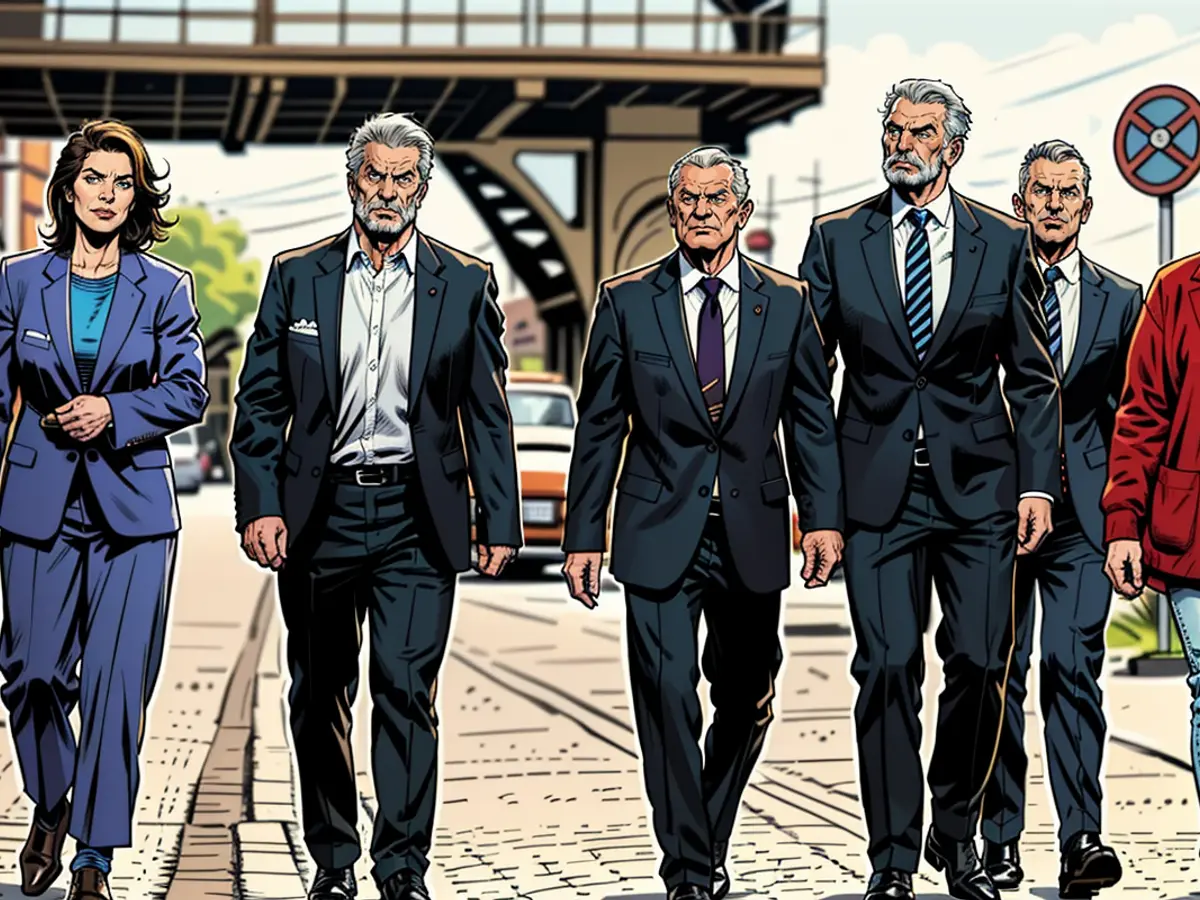- Scholz continues to harbor aspirations
It's a bummer to hear Chancellor Olaf Scholz talking about his coalition's work over the past few months. He repeatedly uses the word "difficult," which the SPD politician can't stop saying. Even the formation of the three-party government and now governing, the budget: "difficult," says the Chancellor in the Sat.1 show "Where does Germany stand?" The constant disagreements have driven SPD, Greens, and FDP apart.
Disillusionment has been around for a while now. Not only have polls shown that most voters are dissatisfied with the performance of the Federal Government, but many in the coalition don't believe in continuing it 13 months before the next federal election. Trust is at its limit. Green leader Omid Nouripour put it bluntly during the ARD summer interview: "This coalition is just a stopgap after the Merkel era."
Scholz talks about the "battleground"
The "traffic light" as a stopgap - that's a harsh assessment that Scholz doesn't brush off lightly. "Every government is the government before the next one," he says casually, sometimes it's even the same one that follows. The traffic light has accomplished a lot: speed in modernization, overcoming the energy crisis, supporting Ukraine, and improving the Bundeswehr's position for its defense. "But at the same time, it's true: All these many decisions were achieved difficult, and one must always fear that somehow the smoke from the battleground, so to speak, obscures what is really happening," he admits. "That's naturally not good."
The smoke that won't clear after traffic light negotiations - that's what the Chancellor might mean by the comments of his traffic light partners. Instead of praising a compromise, they often point out what could have been improved. Nouripour talks about some people's strange pleasure in conflict.
Can this coalition continue?
The tablecloth seems to be cut between the traffic light partners. Vice-Chancellor Robert Habeck (Greens) showed his frustration with the budget: In a budget of over 450 billion euros, it shouldn't be that hard to find three billion. "But we haven't found them yet. Well, that's just the way it is." The SPD hopes for a reform of the debt brake in the next legislative period without the FDP. The FDP, in turn, makes decisions that the coalition partners SPD and Greens must find provoking. The latest example: "Future Plan - A Policy for the Car," a paper that wants to bring more cars into city centers with free parking.
A coalition can't really continue like this, analyst Manfred Güllner of Forsa told Bild. "Then they should honestly end this struggle."
The appeal: Work together
But giving up isn't an option for Scholz. "But one has to make an effort here," says the Chancellor determinedly. After all, it's about the results. Germany must get used to the fact that governments will be formed in the foreseeable future by parties that might not have planned to work together beforehand. Actually, the often strong election results of the AfD ensure that parties have to work together more often across established boundaries. It won't get any easier, the Chancellor thinks.
It's an unspoken appeal from the Chancellor to his government to pull itself together. Interior Minister Nancy Faeser (SPD) agrees with Scholz. "Our task is to work together for the citizens, to get the best out of the coalition, and to work well together in the remaining one and a half years," she said in Rostock. Health Minister Karl Lauterbach (SPD) disagreed with Nouripour's assessment on X: "The analysis is wrong," he wrote. The traffic light is working and is currently clearing a huge backlog in the health sector. The message: There's still ambition in the traffic light coalition.
In the SPD, Nouripour's sharp statements are seen more as an early election campaign move. "I see this as the Greens' initiative to work together with the CDU in the next government coalition," said Juso chairman Philipp Türmer in the Deutschlandfunk. The traffic light coalition must hold together because anything else would be irresponsible. But a continuation of the traffic light coalition? Even he doesn't consider it realistic.
The Green leader Omid Nouripour expressed his views during an ARD interview, stating that the current coalition is merely a stopgap after the Merkel era, represented by 'The ARD'.
Despite the challenges and disagreements within the coalition, Chancellor Scholz emphasized the accomplishments of 'The traffic light' government, such as speeding up modernization and supporting Ukraine, despite the many difficult decisions made along the way.








